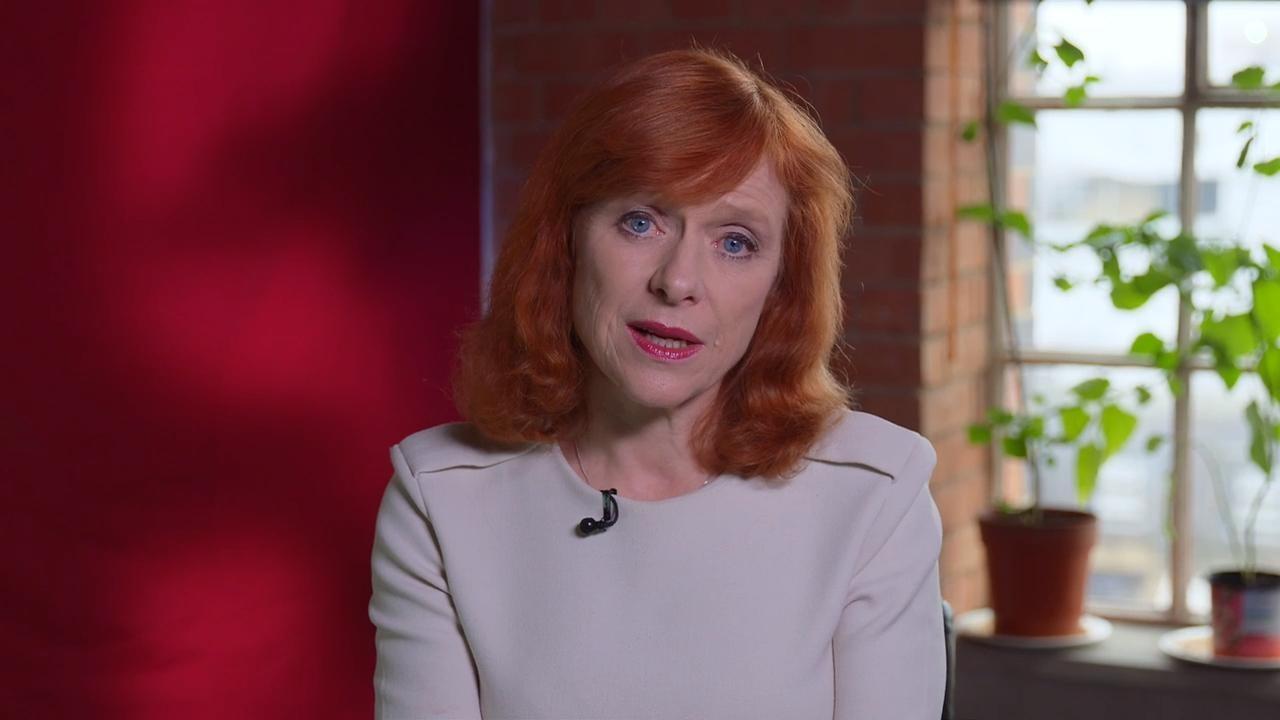
How to cope with a PCOS diagnosis
Peer reviewed by Dr Sarah Jarvis MBE, FRCGPLast updated by Lydia SmithLast updated 26 May 2021
Meets Patient’s editorial guidelines
- DownloadDownload
- Share
- Language
- Discussion
PCOS affects between 1 in 7 and 1 in 20 women of childbearing age but despite how common it is, it's not always easy to deal with a diagnosis, especially if you're confused or unsure about what it means for your health or your future.
In this article:
Video picks for PCOS
In my mid-20s, I started to notice some strange symptoms. I was having to remove excess facial hair nearly every day and, despite exercising regularly and sticking to a pretty healthy diet, gaining weight seemed inevitable. I began to get terrible night sweats and although I've always struggled with anxiety, I began to get mood swings too. It wasn't until this year when I was finally diagnosed with PCOS (polycystic ovary syndrome), a hormonal condition thought to affect between 1 in 7 and 1 in 20 women between puberty and the menopause.
PCOS might be common, but for me, the process of diagnosis was lengthy and frustrating. It took multiple doctors, referrals, blood tests, ultrasounds and internal exams to get answers - which took its toll on my mental health. So what is PCOS - and why can it be difficult to diagnose?
"Polycystic ovary syndrome is the most common hormonal disturbance to affect women," says Adam Balen, a professor of reproductive medicine and surgery at Leeds Fertility at Seacroft Hospital in Leeds. He also runs Balance Fertility.
"The main problems that women with PCOS experience are menstrual cycle disturbances (irregular or absent periods), difficulty in controlling body weight and skin problems - acne and unwanted hair growth on the face or body. Not everyone with PCOS experiences all of the symptoms and, furthermore, problems may change over time. The diagnosis can be difficult to make because the symptoms are varied and not all GPs are aware of the range of problems that can occur."
As Balen explains, symptoms can include (but are not limited to):
Irregular or infrequent periods.
No periods at all.
Reduced fertility.
Excessive hair growth on the face, chest or back.
Weight gain.
Hair loss from the head.
Acne.
However, the symptoms can vary widely depending on the individual, which can make diagnosis more difficult.
How PCOS is diagnosed
A diagnosis of PCOS is usually made with a combination of hormone blood tests and an ultrasound scan to look at the ovaries. Clinicians use the Rotterdam criteria, developed in 2003, in which three criteria are assessed to make a diagnosis.
"PCOS is defined by the presence of at least two out of the three criteria," Balen says.
The criteria include:
Signs or symptoms of high androgens (unwanted facial or body hair, loss of hair from the head, acne or an elevated blood level of testosterone).
Irregular or absent menstrual periods.
Polycystic ovaries on ultrasound scan.
"Polycystic ovaries contain many small follicles which each contain an egg, and have started to grow but do not reach a mature size and instead remain at a size of about 2-9 mm in diameter," he adds. "A polycystic ovary usually contains at least twenty of these small follicles or cysts. The ultrasound picture is not always clear and some women with the polycystic ovary syndrome may have an ultrasound scan that does not demonstrate polycystic ovaries."
Diagnosis isn't always easy
The problem is that PCOS is a spectrum rather than a single diagnostic entity, which can make diagnosis difficult, explains Miss Meg Wilson, consultant gynaecologist at London Gynaecology.
"Many women with PCOS are slim; some women will have menstrual symptoms and some women will have androgenic symptoms. Some women may just have polycystic ovaries on a scan but no symptoms or hormonal abnormalities at all.
"There is still much to discover about PCOS which will hopefully be answered by medical research in the future. This means that we cannot always give an explanation about why some women develop this condition and why some treatments work and others do not. This may lead to confusion."
The stereotyping of women with PCOS can also make diagnosing the condition harder. "While there is often a stereotype of women with PCOS as overweight, the condition affects women of all shapes and sizes," says Wilson.
"Victoria Beckham and Jules Oliver, for example, are two famous women who have been vocal about having PCOS. Currently there is no 'cure' for PCOS. Management of the symptoms is the main course of treatment, but plenty of people do not need help managing these symptoms."
How to cope with a PCOS diagnosis
Back to contentsIf you've recently received a PCOS diagnosis, you might not be sure what to do next or how to cope with the news. Here are some practical tips to make it easier for yourself.
Engage in self-care
It's important to look after yourself if you are going through the process of diagnosis for any health condition. It can be exhausting to chase blood tests and examination results, or to speak to different GPs about your symptoms. Self-care is more important than ever to help you cope with what can be a stressful experience. This might mean taking time off to do activities you enjoy, like going for walks, meeting friends or reading a book to provide some escapism.
Ignore unhelpful comments
PCOS is common, but it doesn't mean every woman has the same experience. Even well-intentioned comments can be hurtful and frustrating, like advising someone with PCOS simply to 'lose weight'. Additionally, reminding the individual that 'lots of women have it' may seem comforting, but it can also make light of their unpleasant and often debilitating symptoms.
"Any comments which simplify the complexity of losing weight are not helpful; people need multidisciplinary support to do this," says Wilson. "The cosmetic issues with acne and increased hair growth on the face and hair thinning on the head may be dismissed,;however, they can cause psychological distress."
Don't be too hard on yourself
As someone who runs every day, frequently does strength training and enjoys walking, it can be hard to struggle with your weight. It's important to be kind to yourself and remember that all bodies are different. The right diet for an individual is one that is practical, sustainable and compatible with your lifestyle.
"Having PCOS does not make you gain weight but women with PCOS find it easy to put on weight as their metabolism works inefficiently to deal with food," says Balen. "Regular physical exercise (at least 20-30 minutes of hard exercise 5-7 days per week) will increase the body's metabolism and significantly improve the ability to lose weight and improve long-term health."
Weight loss can be difficult, but it can help with the management of PCOS symptoms and in some cases, reverse the hormonal imbalance completely. If you are struggling, support groups such as WW (Weight Watchers) and Slimming World can be helpful and provide moral support.
"Technology can also help women take control of weight loss, and we recommend apps such as MyFitnessPal, Sugar Smart, 7 Minute Workout, as well as wearables such as FitBit, pedometers or fitness trackers on your smartphone," says Wilson. "It may be worth getting started with a personal trainer for an exercise plan and motivation, and you may also seek expert input from a dietician or registered nutritionist about an appropriate diet specific to women with PCOS."
Speak to friends and family
PCOS might be common, but it's important not to underestimate the negative impact of the symptoms. Speaking to friends and family about how you feel can help alleviate some of the stress. It's not always easy to talk about your mental health or issues such as unwanted hair or weight gain with other people, but keeping things to yourself can make you feel worse.
Get the right information
Sometimes, it can take consulting several different doctors to get the information or referrals you need, which can be exhausting, frustrating and stressful. However, it's important not to give up if you are struggling with any symptoms. Remember, it's OK to ask your doctor questions if you want more information.
Although there is no cure for PCOS, there are various ways to manage the symptoms. There are also interventions to deal with acne, hair growth and other symptoms too.
"These options can include using hormonal medications, using medication to reduce effective androgen levels and using drugs to reduce insulin resistance," says Wilson. "A consultation with your GP or gynaecologist will help to assess where on the spectrum of PCOS you are, so that appropriate treatment options can be discussed."
It is also important to be aware of the long-term health issues associated with PCOS, even though not all women will experience these problems. "People with PCOS are at an increased risk of diabetes in pregnancy, insulin resistance and type II diabetes, cancer risks (endometrial cancer), cardiovascular issues, sleep issues and depression," Wilson says.
Remember pregnancy is possible
Most women with PCOS are able to get pregnant, even if treatment is required. There are various fertility medicines to improve your chances of conception. If fertility medicines are not effective, a surgical procedure called laparoscopic ovarian drilling may be recommended. This involves using heat or a laser to destroy the tissue in the ovaries that is producing androgens, such as testosterone.
"It may all sound like a poor outlook for women with PCOS, but we see many women who have empowered themselves to deal with their symptoms," Wilson adds. "They manage their symptoms effectively through an active healthy lifestyle, which feeds into a strong emotional well-being, and lead normal lives."
Patient picks for PCOS

Hormones
Video: How much does PCOS affect fertility?
With PCOS leading to so many subsequent problems, it's no wonder that many women have a lot of questions about the condition. Our experts have the answers to some of them.
by Amberley Davis

Hormones
PCOS diet: What to eat to manage symptoms
Polycystic Ovary Syndrome (PCOS) is a health condition that affects some women from their late teens onwards. Though PCOS is sometimes managed with medicine, its symptoms can be reduced through a combination of healthy lifestyle habits - especially your diet.
by Victoria Raw
Continue reading below
Article history
The information on this page is peer reviewed by qualified clinicians.
26 May 2021 | Latest version
26 May 2021 | Originally published

Ask, share, connect.
Browse discussions, ask questions, and share experiences across hundreds of health topics.

Feeling unwell?
Assess your symptoms online for free
Sign up to the Patient newsletter
Your weekly dose of clear, trustworthy health advice - written to help you feel informed, confident and in control.
By subscribing you accept our Privacy Policy. You can unsubscribe at any time. We never sell your data.